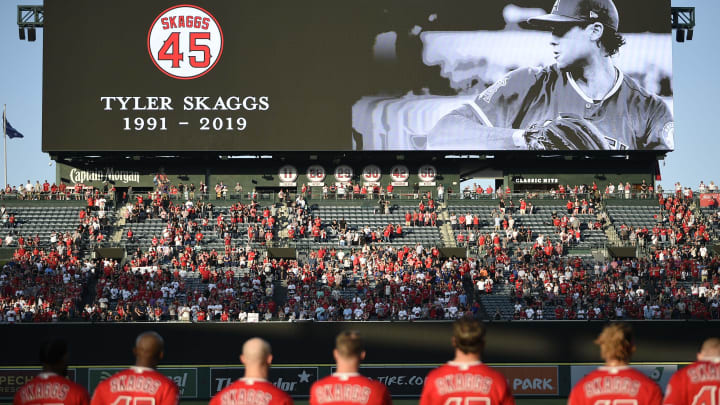MLB Partners With White House in Fight Against Opioid Overdoses

Major League Baseball announced on Tuesday that it will partner with the White House in efforts to reduce deaths from opioid overdoses, in part through an ad campaign this summer focused on drugs that can reverse overdoses, such as naloxone.
“I can't think of a more important public health issue than this particular one,” says Jon Coyles, MLB’s vice president of drug health and safety programs. He adds, “I think our experience and our focus on naloxone in our industry will hopefully, just because of the public facing nature of baseball, help with the public awareness and contribute to the national conversation on this.”
The White House announced last year its Challenge to Save Lives from Overdose initiative; as part of the push, it has asked schools, libraries, airlines and other workplaces to stock naloxone.
MLB is well situated to help. The league was studying opioid use before Los Angeles Angels pitcher Tyler Skaggs died at 27 of an accidental overdose in his Dallas hotel room before a game against the Texas Rangers in July 2019, but his death thrust the opioid epidemic further into the league’s focus. Skaggs had ethanol, fentanyl, and oxycodone in his system; former Angels communications director Eric Kay was sentenced in 2022 to 22 years in federal prison for giving Skaggs the pills that killed him. At least four other major leaguers testified at Kay’s trial that they had bought oxycodone pills from Kay as well.
The winter after Skaggs died, the league and the union agreed to begin testing for drugs of abuse, with those who tested positive referred to medical professionals. Only players who decline treatment are subject to discipline. The league also began encouraging ballparks and trainers to carry naloxone, which can reverse an overdose if the patient receives it in time.
MLB administered some 12,000 drug tests to players last year, and Coyles says opioid use remains low among players. Still, the league is increasing efforts to reach out to their families and to fans, including by partnering with Song for Charlie, a nonprofit that attempts to raise awareness among people ages 13 to 24 about pills that unexpectedly include fentanyl, which is much more lethal at much smaller amounts than what users may think they are taking. The league plans to debut a campaign at the All-Star Game in July, geared toward fans.
As for players and staffers, in 2023 that ’19 recommendation became law. All major and minor league ballparks are required to store naloxone in clubhouses, weight rooms, dugouts and umpire dressing rooms, and all trainers keep the drug on their person at all times, including on flights and at hotels. As far as he knows, Coyles says, no one has ever needed it. If the other prongs of their approach work, they hope no one ever will.
